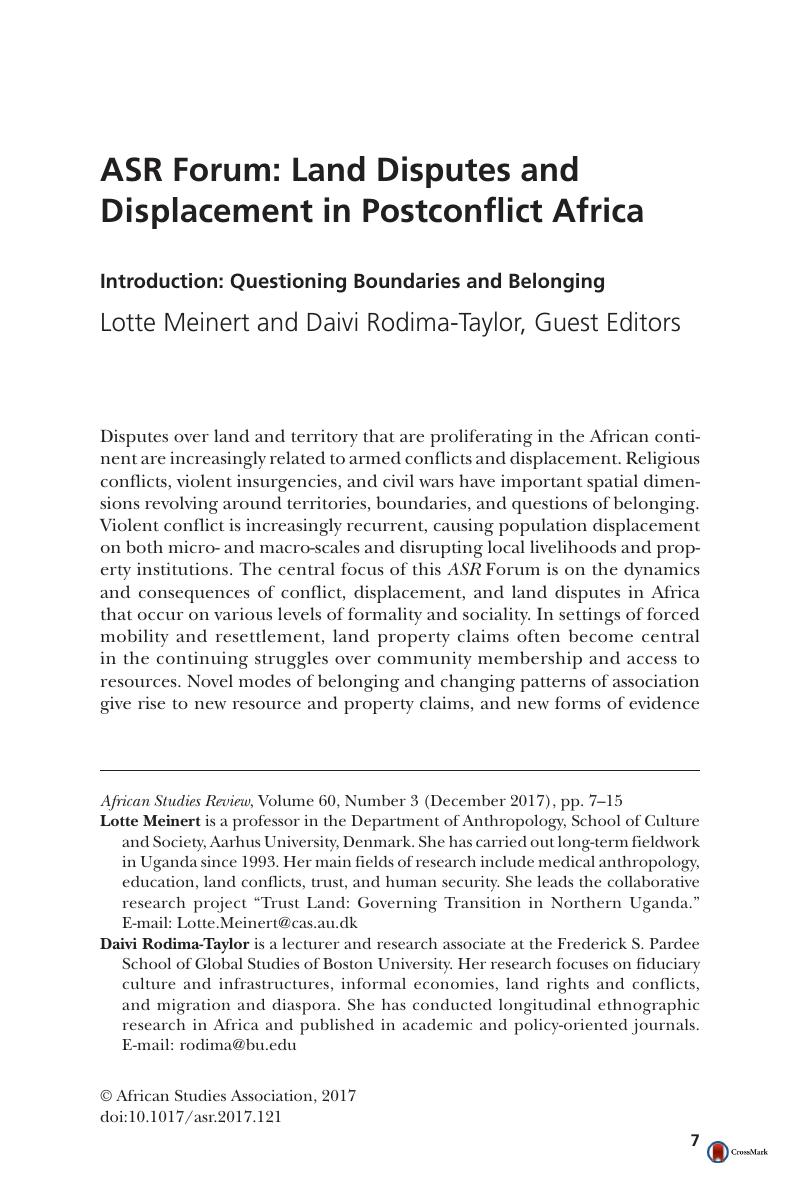Crossref Citations
This article has been cited by the following publications. This list is generated based on data provided by Crossref.
Rodima-Taylor, Daivi
2021.
Digitalizing land administration: The geographies and temporalities of infrastructural promise.
Geoforum,
Vol. 122,
Issue. ,
p.
140.
Kelly, Jill E.
2021.
Land Reform for a Landless Chief in South Africa: History and Land Restitution in KwaZulu-Natal.
African Studies Review,
Vol. 64,
Issue. 4,
p.
884.



